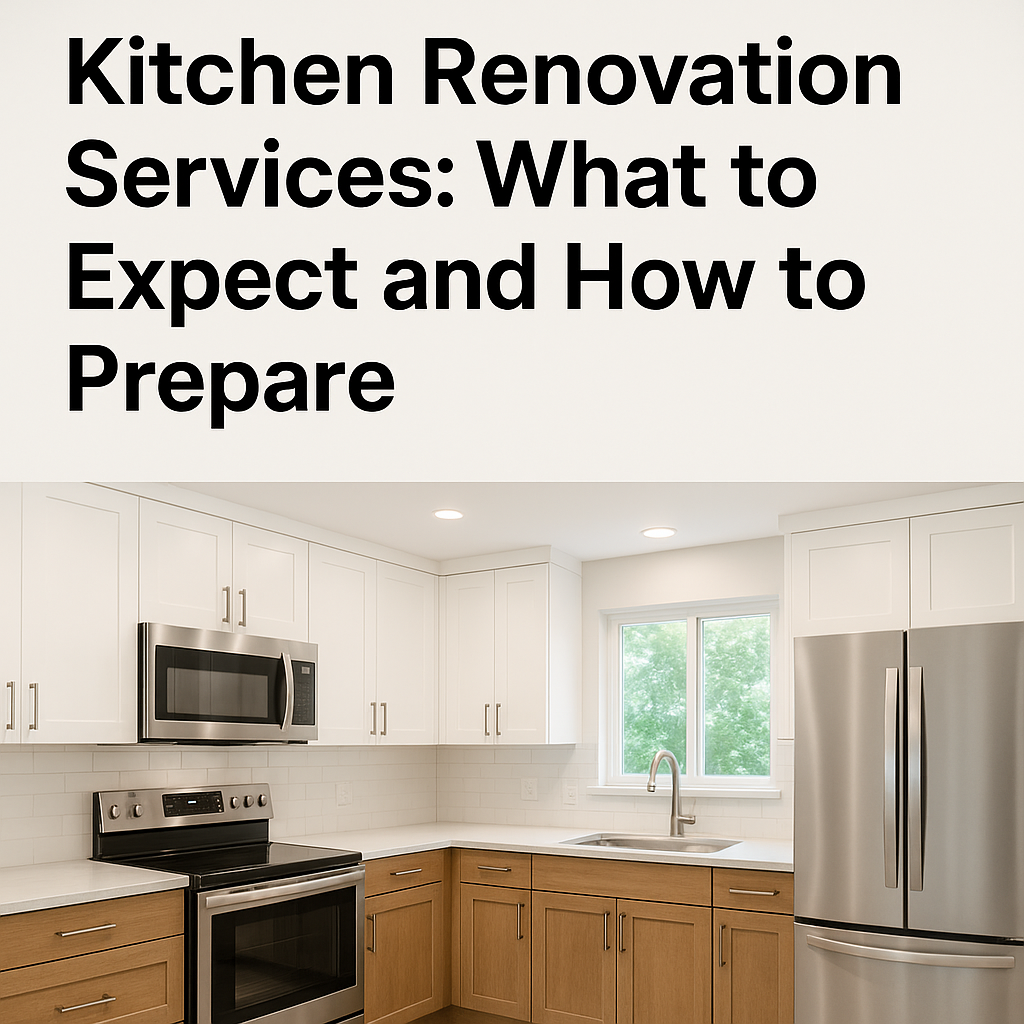A kitchen is more than just a place to cook — it’s the heart of the home, a gathering place for family, and a key factor in your home’s value. If you’re considering a kitchen renovation, you’re not alone. Thousands of homeowners across the U.S. invest in kitchen remodels every year to improve functionality, boost resale value, and create a space they truly love.
But what does the renovation process really look like? What should you expect from a kitchen remodeling service, and how can you best prepare? This comprehensive guide will walk you through everything you need to know.
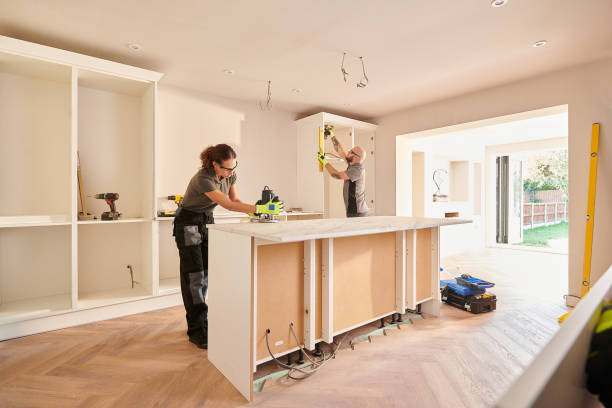
Why Renovate Your Kitchen?
Before diving into the process, it’s important to understand the why behind your renovation. Identifying your goals helps shape the scope of the project and allows you to communicate more clearly with contractors.
Common Reasons for a Kitchen Renovation
- Improved Functionality: Lack of counter space, poor layout, or insufficient storage can make daily use frustrating.
- Outdated Design: Styles change, and an old-fashioned kitchen can feel like a drag on your entire home.
- Increase Home Value: Kitchen renovations typically offer a high return on investment — often recouping 70%–80% of the cost.
- Energy Efficiency: New appliances and lighting fixtures can significantly cut down on utility bills.
- Lifestyle Changes: Whether you’re expanding your family or embracing gourmet cooking, your kitchen should meet your evolving needs.
Step-by-Step Breakdown: What to Expect from Kitchen Renovation Services
A professional kitchen renovation isn’t just about installing new cabinets and countertops. It’s a complex, multi-stage process that requires planning, coordination, and expertise.
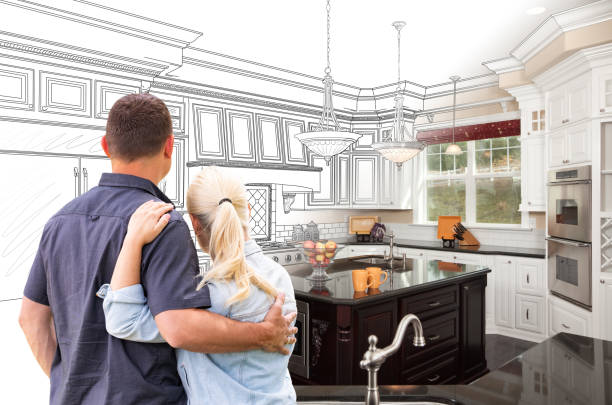
1. Initial Consultation and Planning
The process begins with a consultation. You’ll discuss your ideas, budget, timeline, and priorities with a designer or contractor.
What to expect:
- On-site measurement and assessment
- Discussion of design inspirations and functional needs
- Rough budget estimation
2. Design and Layout
Once goals are clear, the design phase begins. Many services use 3D design tools so you can visualize the transformation.
Key design elements:
- Floor plan changes (open concept vs. closed layout)
- Cabinet styles and materials
- Countertop options (granite, quartz, butcher block, etc.)
- Lighting plans
- Appliance placement
3. Finalizing the Budget and Contract
After the design is approved, the contractor will provide a final quote. Review the contract carefully — it should outline every cost, timeline, and responsibility.
Make sure the contract includes:
- Permits and inspections
- Itemized materials and labor costs
- Payment schedule
- Warranties and insurance
4. Demolition and Preparation
Once all materials are ordered and delivered, demolition begins. Expect noise, dust, and temporary disruption.
Tips for preparation:
- Set up a temporary kitchen (microwave, fridge, portable stove)
- Protect nearby furniture with plastic sheeting
- Safely store valuables and breakables
5. Construction and Installation
This is the heart of the renovation. Contractors install plumbing, electrical systems, flooring, cabinetry, countertops, and fixtures in a strategic order.
Typical timeline:
- Plumbing/electrical rough-ins: 2–3 days
- Flooring and walls: 3–5 days
- Cabinets and countertops: 4–7 days
- Final touches (backsplash, paint, lighting): 2–4 days
6. Final Inspection and Walkthrough
Before handing over the finished space, the contractor will do a final walkthrough. You’ll check for any issues, test appliances, and ensure everything matches your expectations.
How to Prepare for a Kitchen Renovation
A smooth renovation starts with smart preparation. Here’s how to get ready — practically and mentally.
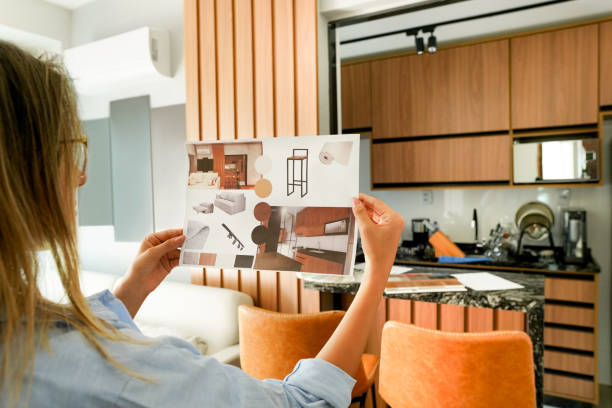
Set a Realistic Budget
Don’t just consider the quoted price. Include:
- Unexpected repairs (set aside 10–20% for contingencies)
- Eating out during construction
- Upgrades or add-ons
Gather Inspiration and Define Your Style
Use platforms like Pinterest, Houzz, or Instagram to create a visual mood board. Knowing your preferred style — whether it’s modern farmhouse, minimalist, or classic — helps guide design decisions.
Research and Choose the Right Contractor
This can make or break your experience. Look for:
- Verified reviews and referrals
- Portfolio of past work
- Proper licensing and insurance
- Transparent communication
Pro Tip: Interview at least three contractors and ask for detailed quotes before making a decision.
Plan for Disruption
Living through a renovation can be stressful. Reduce headaches by:
- Creating a renovation-free zone for relaxation
- Establishing clear timelines and updates with your contractor
- Communicating regularly with your family about the progress
Tip: What to Ask Before Hiring Kitchen Renovation Services
To attract the right contractor and avoid costly mistakes, ask the following:
- How long have you been in business?
- Can you provide local references?
- Are you licensed and insured?
- Who will manage the project day-to-day?
- What’s the estimated timeline and potential delays?
- What is your cleanup policy?
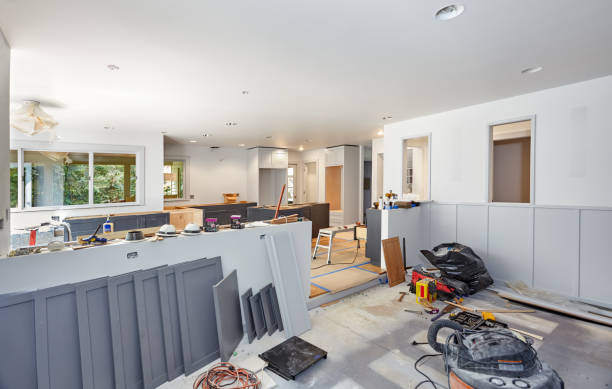
Adding these questions to your checklist can save you time, money, and frustration.
Ready to explore kitchen renovation options within your budget?
Popular Kitchen Trends in the U.S. (2025 Edition)
Want your renovation to feel modern and marketable? Consider incorporating these current design trends:
- Quartz Countertops: Durable and low-maintenance
- Matte Black Fixtures: Sleek and contemporary
- Open Shelving: Airy and accessible
- Two-Tone Cabinets: Adds dimension and character
- Smart Appliances: Energy-efficient and high-tech
Final Thoughts: Transforming Your Kitchen, One Step at a Time
Kitchen renovations can be both exciting and overwhelming. But with the right planning, team, and expectations, the process can lead to one of the most rewarding upgrades in your home. Whether you’re dreaming of a sleek chef’s kitchen or a cozy, rustic retreat, knowing what to expect — and how to prepare — is the key to success.
Invest the time to research, plan thoughtfully, and communicate clearly with your renovation team. Your future kitchen — and future self — will thank you.
